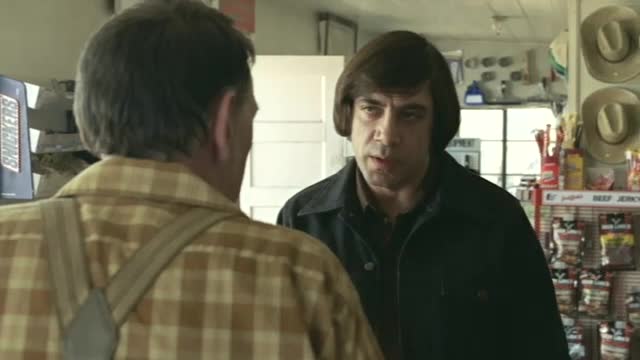
Violence and Morality The Ethical Dilemmas in No Country for Old Men
Violence and Morality: The Ethical Dilemmas in No Country for Old Men
No Country for Old Men, a film directed by the Coen Brothers and adapted from Cormac McCarthy’s novel, presents a raw portrayal of violence and the moral complexities surrounding it. Set against the backdrop of the desolate landscapes of Texas, the narrative weaves through the lives of its characters as they confront the implications of their actions amidst a backdrop of chaos. The film’s exploration of morality challenges viewers to grapple with tough ethical dilemmas that arise when human lives are at stake, illustrating how violence can often strip away the complexities of right and wrong.
The Nature of Evil
At the heart of No Country for Old Men lies the character of Anton Chigurh, a hitman whose moral compass seems disturbingly skewed. Chigurh’s philosophy about life and death raises the question of whether his actions can be justified in a world devoid of meaning. His infamous coin toss becomes a chilling mechanism for determining the fate of his victims, embodying a nihilistic view that challenges traditional understandings of morality. As audiences watch the relentless and brutal pursuit of both Chigurh and his target, Llewelyn Moss, they are forced to confront the unsettling reality that violence often emerges devoid of reason, creating an environment where ethical considerations become blurred amidst survival instincts.
Consequences of Choices
The character of Llewelyn Moss, who stumbles upon a drug deal gone wrong and takes a briefcase full of money, serves as a catalyst for the ensuing chaos. His choice to keep the money ignites a deadly chain reaction, leading to profound consequences not only for himself but for those around him. Moss's moment of greed illustrates the moral ambiguity present within the film, exemplifying how one decision can lead to catastrophic ramifications. The pursuit by both Chigurh and Sheriff Ed Tom Bell highlights the contrasting approaches to morality—while Bell embodies a more traditional sense of justice, he struggles to find his place in a world that increasingly seems to celebrate violence over virtue. This juxtaposition of characters elucidates the difficulties in navigating morality when faced with the harsh realities of life.
Contemplating Moral Responsibility
The film also delves into the concept of moral responsibility, particularly through the character of Sheriff Bell, who witnesses the decay of societal values and questions his role in an unforgiving world. His reflections evoke a sense of nostalgia for a time when actions had clear moral ramifications. Bell's internal conflict signifies the struggle many face in choosing between following the law or adhering to their own ethical beliefs. He represents the audience’s desire for resolution in a narrative riddled with uncertainty and violence, emphasizing the film's underlying assertion that morality is often a personal journey marked by individual beliefs and experiences.
No Country for Old Men Merchandise
The themes of violence and morality in No Country for Old Men have resonated deeply with audiences, leading to a wide array of merchandise that reflects the film's iconic imagery and philosophical underpinnings. From collectibles featuring Chigurh’s signature weapon, the silencer-modified shotgun, to t-shirts quoting his chilling lines, fans are eager to own a piece of this poignant cinematic work. Additionally, art prints featuring the haunting landscapes that frame the story serve as a reminder of the moral complexities portrayed in the film. By engaging with No Country for Old Men merchandise, fans are not merely celebrating a film but are also prompted to reflect on the ethical dilemmas it confronts. Such items foster discussions on the intersection of violence and morality, promoting a deeper understanding of the themes that make the work so impactful.









